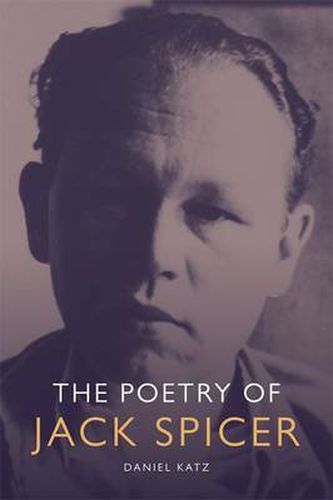Readings Newsletter
Become a Readings Member to make your shopping experience even easier.
Sign in or sign up for free!
You’re not far away from qualifying for FREE standard shipping within Australia
You’ve qualified for FREE standard shipping within Australia
The cart is loading…






The first full critical study of this San Francisco Renaissance poet
In the years since his death from alcohol poisoning, Jack Spicer (1925-1965) has gradually come to be recognized as one of most intriguing of the so-called ‘New American Poetry’ poets. This study places Spicer’s work in the context of the San Francisco Renaissance and contemporary movements with which he was in dialogue such as the Beats, the Black Mountain poets, and the ‘New York School’. It also explores his relationship to the major modernists from whom his innovative poetics derived. Informed by archival material only recently made available, the book examines Spicer’s post-Poundian translation projects, his crucial theories of the ‘serial poem’ and inspiration as ‘dictation’, his contrarian take on queer poetics, his insistently uncanny regionalism, and his elaboration of an epistolary poetics of interpellation and address.
$9.00 standard shipping within Australia
FREE standard shipping within Australia for orders over $100.00
Express & International shipping calculated at checkout
The first full critical study of this San Francisco Renaissance poet
In the years since his death from alcohol poisoning, Jack Spicer (1925-1965) has gradually come to be recognized as one of most intriguing of the so-called ‘New American Poetry’ poets. This study places Spicer’s work in the context of the San Francisco Renaissance and contemporary movements with which he was in dialogue such as the Beats, the Black Mountain poets, and the ‘New York School’. It also explores his relationship to the major modernists from whom his innovative poetics derived. Informed by archival material only recently made available, the book examines Spicer’s post-Poundian translation projects, his crucial theories of the ‘serial poem’ and inspiration as ‘dictation’, his contrarian take on queer poetics, his insistently uncanny regionalism, and his elaboration of an epistolary poetics of interpellation and address.